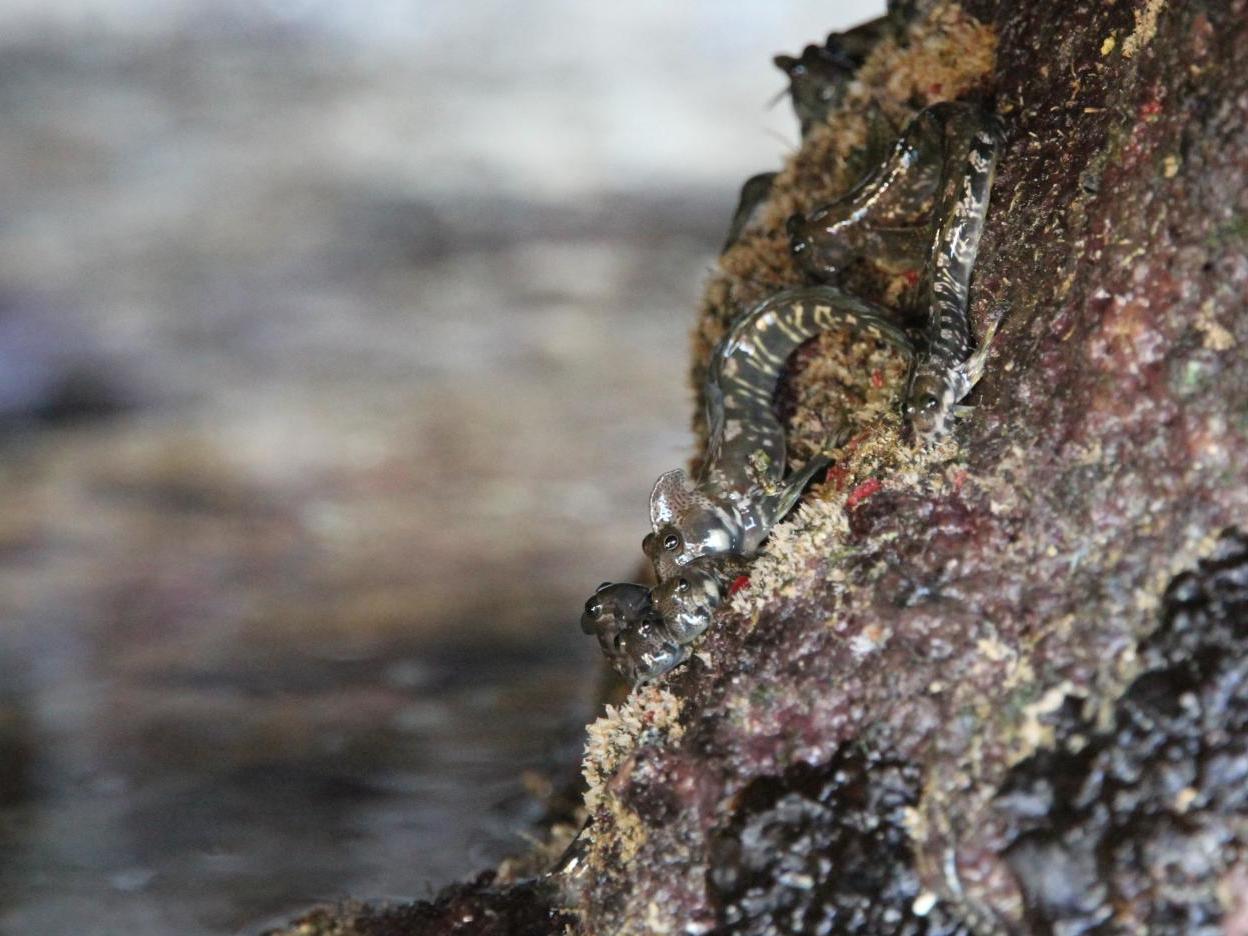Fish out of water: Scientists reveal how blennies adapt to life on land after leaving oceans
They are ‘jack of all trades’ in water, ‘master of one’ on land - and this could be key to blennies’ success, study suggests

“Like a fish out of water” is an expression that does not apply to the blenny – species of which have now given up almost entirely on oceans and continue their fishy lives on land.
New research into these fascinating animals suggests that their broad capacity for adaptability in water, including flexible diet and behaviour, could have been key to propelling them ashore. However once there, their success on land has been due to new, highly-specialised behaviour.
The researchers, from the University of New South Wales and University of Minnesota, compared the fish’s evolution in the water to being a “jack of all trades”. In contrast, their subsequent adaptations on land saw bennies become “a master of one”.
The research teams studied the fish to try to understand how such a leap between different habitats could have been undertaken successfully.
Dr Terry Ord, lead author of the research, said: “The implications of our findings are that having a broad diet or being behaviourally flexible can help you move into a new habitat. But once there, this flexibility becomes eroded by natural selection. This presumably means those highly specialised species are less likely to be able to make further transitions, or cope with abrupt environment changes in their existing habitat.”
Different species of blenny occupy strikingly different environments: Some are aquatic while others spend time in and out of the water in the intertidal zone, an extreme environment with fluctuating water levels and pools that can rapidly change in temperature and oxygen levels.
Some blenny species are terrestrial and spend almost their entire lives out of the water in the splash zone, and must stay moist in order to breathe through their skin and gills.
Because of this diversity, different species of blenny and their habits represent certain stages of the “invasion process” between two completely different environments. This makes them a unique group of animals to study, the scientists said.
The scenario of fish colonising land has obvious parallels with the origin of all land vertebrates, the research teams noted.
“Fossils can give us important insights into how that transition might have unfolded, and the types of evolutionary adaptations it required or produced. But having a contemporary example of fish making similar ecological transitions can also help us understand the general challenges that are faced by fish out of the water,” said Dr Ord.
Detailing the origins of the study, Dr Ord explained how he and co-author Dr Peter Hundt had amassed extensive data on many different species of blenny across the world.
“Peter had detailed information on diet and teeth morphology, while I had lots of data on behaviour and frequency of different species emerging from water for brief or extended periods on land,” he said.
“We threw a set of complex evolutionary statistical models at this combined data and we were able to reveal the sequence of events that likely allowed aquatic marine fishes to ultimately evolve into fishes that could leave water and then colonise land. Our study also showed how those species on land adaptively changed to better suit the specialised diet needed to survive on land.”
The authors cautioned that although their observations suggested the blennies' flexible diet and behaviour led to their transition to new environments, more "experimental investigation" was needed.
“It's possible that diet or behavioural flexibility are not responsible, and that some other currently unknown factor is. What this experimental study might be is hard to imagine at this stage, but we’re working on it,” Dr Ord said.
The authors plan to further investigate how invading land has impacted other aspects of blenny behaviour, ecology and bodies.
“Terrestrial blennies are really agile out of water, and I suspect they’ve adapted their body shape to allow them to hop about the rocks so freely. Which in turn implies they might not be able to go back to the water,” said Dr Ord.
“It would also be exciting to know how their sensory systems might have adapted out of the water as well, given vision and smell would probably work quite differently in these environments.”
The research is published in the British Ecological Society journal Functional Ecology.
Join our commenting forum
Join thought-provoking conversations, follow other Independent readers and see their replies
Comments